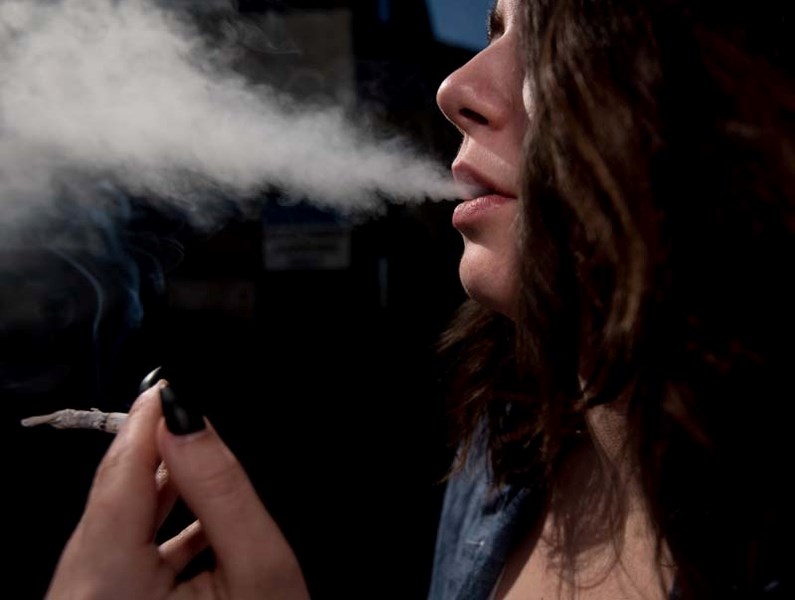Last week the federal government announced it will move forward with its highly-anticipated and contentious pledge to legalize recreational marijuana.
What might possibly be the most memorable piece of legislation undertaken by the Justin Trudeau Liberals will most certainly result in polarizing political and personal stances.
Social media and online reactions range from cheers to fears – including criticisms that the whole movement is nothing short of a government tax grab that has parent and landlord advocates up in arms.
“I’ve witnessed Justin Trudeau try to manage the economy, electoral reform … I’m not sure I have faith in his ability to protect kids from pot,” said Banff-Airdrie Conservative MP Blake Richards.
Richards said the whole push is “too rushed” and leaves “a lot of unanswered questions that need to be answered before this is moved forward.”
Some concerns raised by Richards include testing for impaired drivers; workplace safety; the protection of children/youth; and what he believes will be an ineffective move at reducing the criminal element.
Corp. Troy Savinkoff with the Cochrane RCMP said he is “interested to see what will come out of the legislation” as impaired driving by drug, which carries the same penalty as alcohol, presents some “unique issues.”
Savinkoff said members have been receiving training for the detection of drugs as it relates to impaired driving, but that drug detection is not as straightforward as alcohol detection.
The Cannabis Act is targeted to become law no later than July 2018 and includes stricter penalties for drug-impaired driving, including improvements to detection and enforcement.
For supporters of the movement, legalization is long overdue and a “step in the right direction.”
Greg is a lifelong recreational user of cannabis who turned to the plant for medicinal reasons around one year ago in order to help with chronic pain and symptom management resulting from Type 2 diabetes.
He has requested to not have his last name printed.
“I’m elated that they are doing this … it’s crazy that it was illegal in the first place,” he said.
For him, the healing power of pot has been a game changer for his overall quality of life. A diagnosed diabetic for more than a decade, Greg’s symptoms became debilitating in recent years – including mobility issues, chronic pain and peripheral neuropathy (severe below-knee numbness).
“You could stick a needle in my toes and I wouldn’t feel it,” he said, confirming that he decided to become a card carrier last May because his chronic pain was progressing and preventing him from sleeping at night.
Since medical usage through edible oils and vaporizing began barely one year ago, Greg has been able to live a more active life. The marijuana use combined with a healthier lifestyle has allowed Greg to come off Gliclazide (commonly used to control Type 2 diabetes) and to cut his dose of another diabetes medication, Metformin, in half.
Greg does not take any opiates or pain medications, which he said is ineffective for peripheral pain. He has also refused to take anti-convulsion and anti-depressant medication for his diabetes, as was recommended to him by the medical community.
He feels that legalization for recreational users will help remove the stigma around the “reefer madness” myth once taught in classrooms and will help reduce violent crime – as long as it’s done right.
“The public education piece is going to be a huge part of the success of this,” he said, adding that strict enforcement and regulation is necessary where minors are concerned.
“I wholeheartedly agree with the severity of the penalties regarding youth.”
This sentiment was echoed by Valerie McVeigh, manager of Cochrane hemp shop Puff N Stuff and licensed medical marijuana user.
“It’s a natural, logical progression for us (to sell cannabis) but that being said there’s a lot of work to be done,” said McVeigh. “People are concerned about the retail aspect of it – but they don’t have to be.”
She said that her store already strictly enforces a policy to not sell to minors under age 18 and that this would only heighten once legalization of cannabis is moved forward.
“I’m glad to see it will no longer be a criminal offence,” she said, adding that she hopes when the time comes that alcohol use, which she personally views as “poison,” won’t be “favoured” over marijuana.
Cannabis act highlights:
- Restriction of sale of cannabis to youth under age 18; provinces have ability to increase age, not decrease- Penalties for illegal sale of cannabis or sale to a minor range from tickets, up to 14 years in jail- Possession would be legal for adults carrying up to 30 grams of cannabis substance- Legal to grow up to four plants- Penalties for possession over the limit range from tickets, up to five years in jail- Taking cannabis across Canadian borders punishable up to 14 years in jailFor more go to www.canada.ca/en/services/health/campaigns/legalizing-strictly-regulating-cannabis-facts.html




